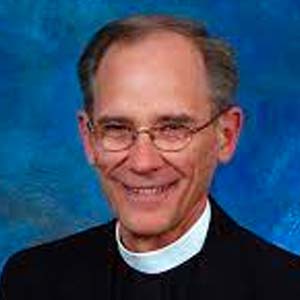Last Sunday in St. John’s gospel we heard about the images of light and darkness. These are favorite images of John and he uses them frequently to symbolize the struggle between good and evil. Nicodemus comes to Jesus at night – perhaps out of fear of being associated with Jesus, but for John it also conveys the idea that he is “in the dark” when it comes to understanding the real identity of Jesus. We still use that phrase in ordinary conversation when speaking of someone who is not informed or oblivious about what is going on. He or she is “in the dark.” During the on-going pandemic as more and more people are vaccinated, we speak of the “the light at the end of the tunnel,” once again using that familiar term. There is also a connection with nature. With the arrival of spring, we welcome longer hours of daylight.
Much of our Lenten journey can be described as a movement from darkness to light. On Ash Wednesday we receive ashes and thus publicly acknowledge our sinfulness. To one degree or another we are in the dark and need to move toward the light who is Christ, the light of the world. Hopefully over the past 5 weeks we have made some progress, some movement from darkness to light. Based on our experience of previous Lents, we rarely find ourselves profoundly enlightened or transformed by the time Easter comes around. There might be a little more light in our lives, but there is a long way to go.
Spiritual growth is primarily made in small increments, sometimes hardly noticeable. But God is not out there with a measuring stick. For God a little sincerity goes a long way. In other words, the effort we make- however limited- in itself brings us closer to the light. That is comforting to know, because often we feel we are going nowhere or God must be fed up with our good intentions -even during Lent- that yield little if any progress. On the contrary God delights in our good intentions which count far more than measurable results.
In a way that is the true joy of Easter. In the midst of all of our feeble attempts at holiness, our mixed motives, our Yes and then No, our bungled Lenten penances, even our betrayals ( cf. St. Peter), there is every reason to rejoice because God has overcome the darkness of sin and death in Christ Jesus and given us this great hope that someday we will come to the fullness of life and light with all the saints in the Kingdom of Light. It is God’s success story and not our own. Good thing.



